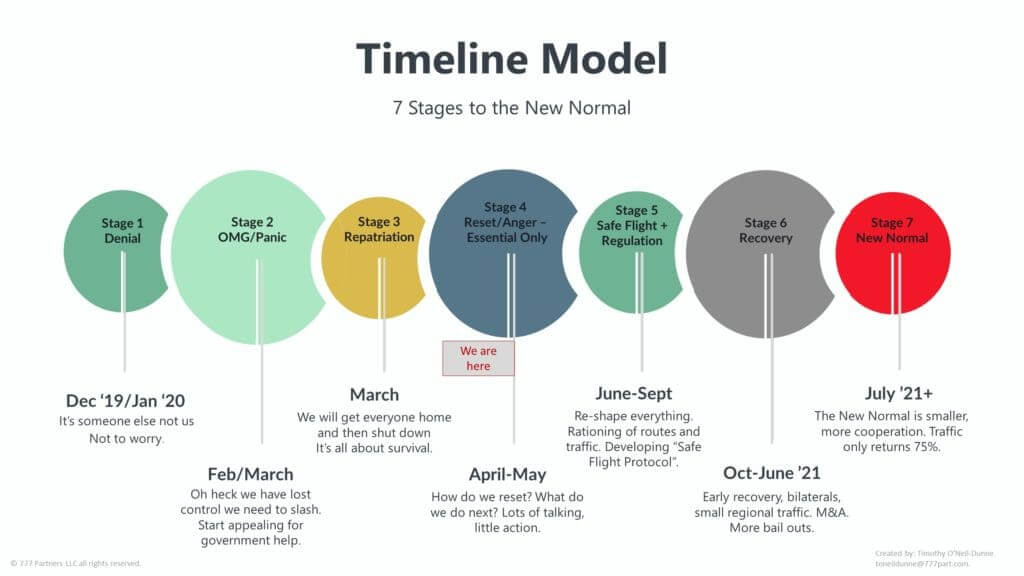Sincerely, BLLA
Crisis Guide Recap: Travel Concerns
On April 16, 2020 the Boutique Lifestyle Leaders Association gathered key leaders in the travel industry to convene and discuss with our gl...
Sincerely, BLLA
On April 16, 2020 the Boutique Lifestyle Leaders Association gathered key leaders in the travel industry to convene and discuss with our gl...
On April 16, 2020 the Boutique Lifestyle Leaders Association gathered key leaders in the travel industry to convene and discuss with our global community insights into what is happening amid the pandemic. The experts included:
Roger E. Block, President, Travel Leaders Network
David Harris, CEO, Ensemble Travel Group
Jake Haupert, Co-Founder, Transformational Travel Council
Anastasia Mann, Chairman & CEO, Corniche Travel
Alex Sharpe, President & CEO, Signature Travel Network
The session was moderated by Timothy O’Neil-Dunne, Principal, 777 Partners

To date, the travel industry has taken an estimated $400 billion in losses as a result of the current COVID-19 pandemic. According to Timothy O’Neil-Dunne, Principal, 777 Partners, this puts travel at a nearly-unprecedented low in the modern era, decreasing airline activity between 80 and 93%; these levels have been unheard of since the time period immediately following World War II. Perhaps even more jarring – COVID-19’s lasting effects are estimated at levels seven times larger than the impact of September 11th, 2001.
Currently, O’Neill-Dunne believes the industry is at stage 4 of a 7-stage COVID-19 timeline. After denial, panic and repatriation led to total shutdown, the travel industry is at a point where it must begin to figure out how it resets before it can move into dictating safe flights and regulations this June. Ideally, recovery will begin slowly in October of 2020 before the industry begins to move into a new normal in July of 2021, at about 75% of original travel.
Assuming this timeline is relatively accurate, the industry stands poised to begin reopening within the next month. However, the question remains – what will reopening and recovery look like with no end date to the current restrictions? According to the heads of numerous travel groups, this entry into the unknown could hamper the quick return to travel many in the industry are hoping for.

According to David Harris, CEO of Ensemble Travel Group, “all sectors of travel can and should do more to promote the value of the industry.” He believes a key responsibility of the industry post-COVID-19 will be to provide education to travelers and government officials alike to ensure travel and the revenue it provides stays front-of-mind during the recovery efforts. These education efforts provide a collaborative opportunity for all members of the travel community, and communication should remain open between travel advisors, vendors, and clients alike.
Jake Haupert, co-founder of Transformational Travel Council, agrees, maintaining that travel is both a luxury and a business. Unfortunately, according to Haupert, leisure travel is going to suffer for a while after this pandemic, leaving travel advisors to reconsider their roles. “Afterwards, we’ll need to put more thought into intention into why we leave home, and the role of travel companies will be to supply the ‘Why’ behind travel.”
Fortunately for boutique hoteliers, thoughtful travel and unique experiences are what boutique does best. In fact, Anastasia Mann, Chairman and CEO of Corniche Travel, believes this is an advantageous time for boutique travel, “Small establishments are easier to manage and keep clean, making them an ideal starting place to begin travel again.” Similarly, Roger Block, President of Travel Leaders Network, points out that boutiques are in a great position to work with agencies looking to recommend unique experiences closer to home; “right now, it’s more important than ever for boutique hotels to work closely with travel agencies.”
Boutique maintains an advantage as hotels and travel transition to reopening in a way that ensures guests continue to feel safe – a practice which, according to Harris, must include clear, concise protocols and proper technology. Alex Sharpe, President and CEO of Signature Travel Network, believes that boutique hotels are more personal and can effectively relay safety regulations and practices in a way guests understand. She says “chains have the necessary infrastructure and resources to promote safety but they’re just so impersonal.”
As boutique travel and hotels look to return to the new normal that is the next stage in O’Neil-Dunne’s sequence, boutique owners look to face further exposure to the whims of host countries and government entities alike. In order for the industry to return, the government has a responsibility to begin viewing travel as a business with economic value which needs help for sustainment. The recovery of the travel industry is a bit further away than that of other industries, and all its interconnecting parts rely on one another for recovery to happen.
Once travel resumes, it’s important to note that an immediate return to business as usual just isn’t feasible, especially where international travel is concerned. “All of us will need to look at travel with fresh eyes before we return to international travel,” says Haupert, stressing a need to approach resuming travel responsibly. “Look at microadventures to remote and wild places locally and regionally first. Then, focus on being empathetic and ethical toward host countries in order to receive a hearty welcome in return.”
As recovery begins, it’s clear that the boutique industry and travel are inextricably intertwined. Supporting one entity means supporting the travel industry as a whole during these uncertain times. BLLA encourages you to reach out with continued questions and concerns – together, we can #SaveBoutiqueHotels
Originally posted on May 9, 2020
The association has compiled their first annual ranking of those individuals who possess the most influence and soul amid a true entrepreneurial spir...
The boutique hotel industry has grown in its popularity among travelers since the term was first coined in the 1980s, and especially in recent years,...
